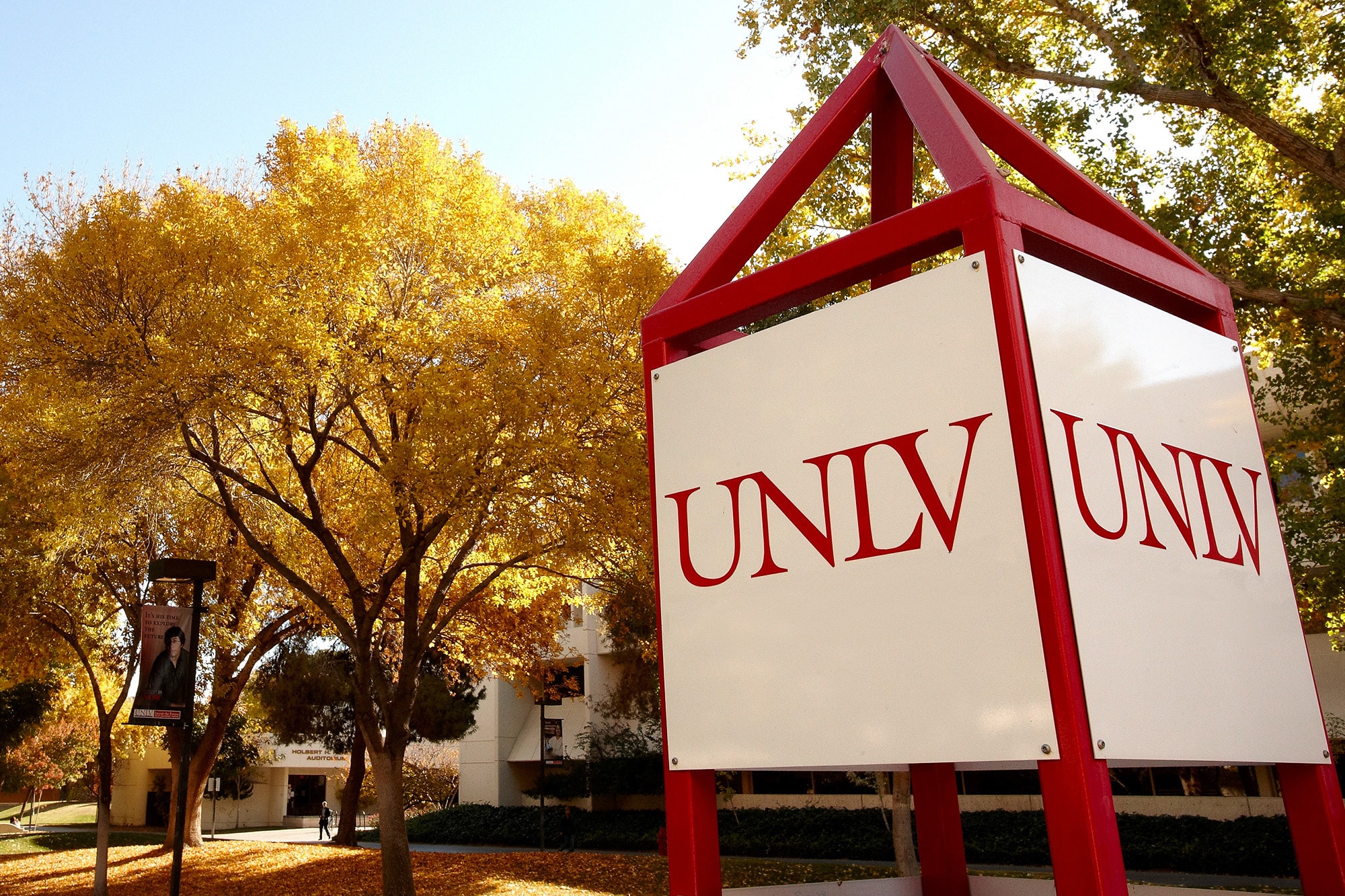As a chemistry teacher, Ray Patterson taught his students about chain reactions, and his combustion demonstrations were always popular. Now he teaches his Boyd School of Law students how to diffuse heated situations without suing. He came to UNLV after running the New York City mediation program for citizen complaints against police officers. Here he's part the Saltman Center for Conflict Resolution, which earned the 2008 Alternative Dispute Resolution (ADR) Education Award from the 9th U.S. Circuit Court of Appeals and helped elevate the law school to ninth on U.S. News & World Report's ranking of ADR programs.
A Big Job: The Saltman Center has a huge mission. It's to teach, to research, and to serve from the local level to the international level. Our mission is the world, to end conflict in the world.
Beyond the Sound Bite: The center's Peace in the Desert lecture series grew out of the fact that most of us get our news about the world in bits and pieces, so it's very hard to form a position on an issue. And if we don't have an informed position, we really can't help our leaders make the right choices for us.
You Can Get Satisfaction: Everybody comes to court thinking they're going to win. Unfortunately, only one person is going to win, and it may not be the one who should win. The law is about looking backwards to see who's liable. Mediation is about getting the two sides to a solution they can both live with tomorrow. By and large, both parties walk away with some satisfaction.
Nuts and Bolts: Lawyers need to be grounded in mediation because it enlarges their toolbox. Most lawyers and most people think that if you have a dispute with someone, you have to sue. Reminds me of the old saying that when the only tool you have is a hammer, everything looks like a nail.
Tension Releaser: If you were to observe mediation, you might not think much of it. It's just people sitting around talking. Two of those people, though, have a lot of tension around them. The third, the mediator, is pulling some invisible strings and levers that move two diametrically opposed individuals to a place where they can begin negotiating.
Opening Up: My hero was my grandfather. He was the guy everybody brought their broken stuff to. He told me the key was to open the thing up and then put it back together; most of the time it starts working again. That's kind of what a mediator does.
Laying It Out: Most disputes escalate very rapidly. The mouth goes into overdrive while the ears shut down. The mediator tries to get each side to hear the information that the other side is giving. The more information that is laid out on the table, the better the chances that people can develop a solution between themselves.
Fast Thinking: At the end of my first mediation case, a client turned to me and said, "How long have you been doing this?" I took a deep breath and said, "My God, it seems like a hundred years."
It's a Compulsion: When I'm teaching, I always wear a tie. I don't know why. They know I'm the teacher; I'm standing at the front.
To Be So Young: Firstyear students are often so na?ve about the law. It's charming and a little sad in a way. They have this idea that the law is so clear that you apply it and you know who's right. It's a great shock when they find out that laws are not beautifully crafted, and they don't always lead to the "right" solution.
Parking Tickets: We're training students in arbitration skills by running a parking appeals program for the campus. Construction here makes that interesting. Some students will come to the arbitration with evidence, like pictures showing a parking sign blocked by a tree. Others will honestly say, "I know I parked wrong; I was just hoping you'd cut me a break." You can't do much for the latter, but you can give them the benefit of an official hearing. It's also benefitted Parking and Transportation Services by showing them how to make their rules more easily understood.
In a Lawyer's Best Interest: Law bats you around a bit. There's a lot of confrontation. Many lawyers want to find another way to resolve disputes where they don't have to scream at another lawyer or demonize a husband or wife. They want another way to really help their clients.



